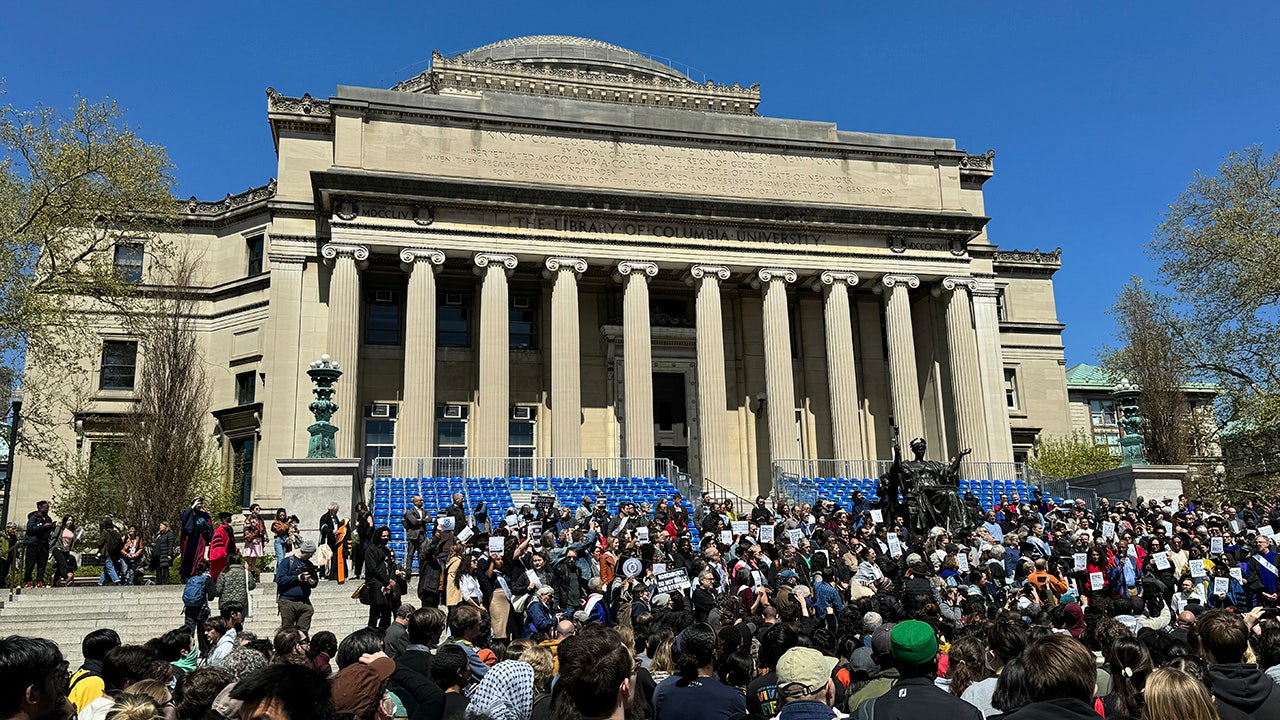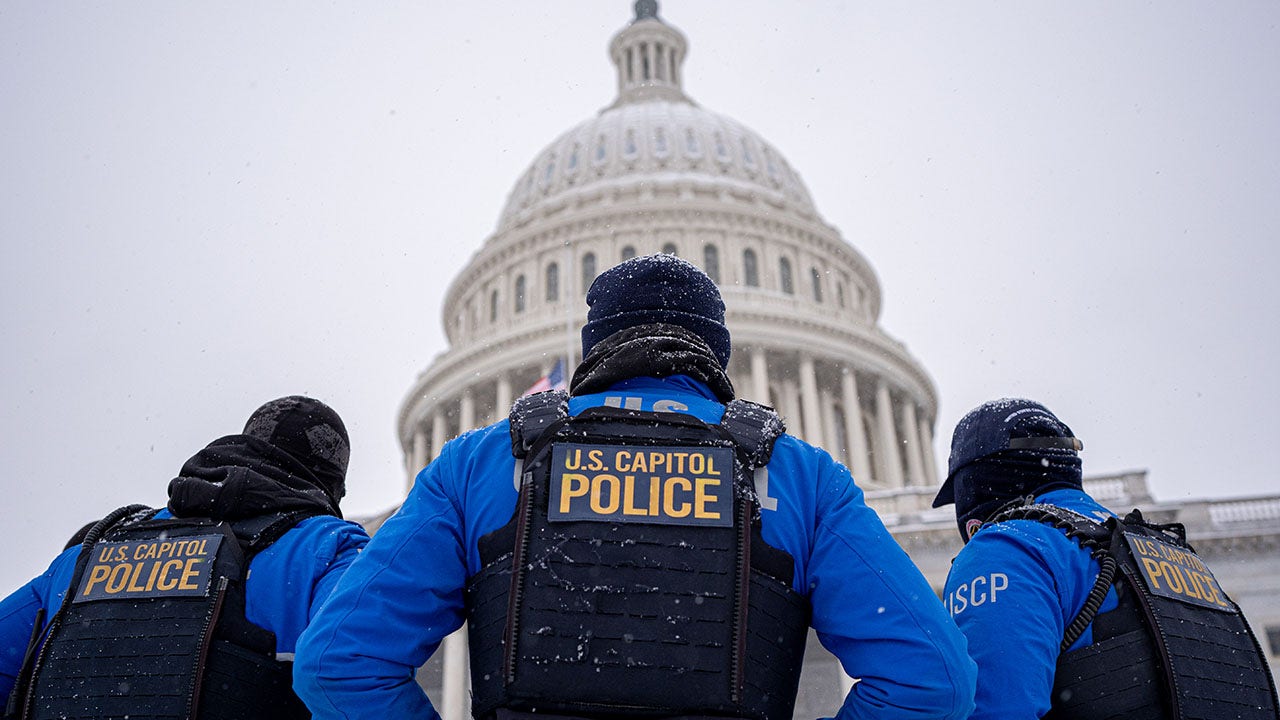There was a lot of breathless speculation before Tuesday’s presidential primaries in Michigan, but the actual results didn’t clarify the two most important questions: How many “uncommitted” voters angry about President Biden’s approach to the war in Gaza will abstain in November, even though Donald Trump would surely be much more supportive of Benjamin Netanyahu than Biden? And how many blue-collar workers will support Trump in the false belief that he’s on their side?
But we can at least say with certainty that Trump is not now and never has been pro-worker — while Biden is.
Naturally, that’s not the way Trump tells the story. In September, during an autoworkers’ strike, Trump, addressing workers at a nonunion Michigan auto parts factory, declared that he had saved an auto industry that was “on its knees, gasping its last breaths” when he took office. The day before, by contrast, Biden joined union workers on the picket line.
This is, however, pure self-aggrandizing fantasy. When Trump took office, the auto industry had already regained most of the ground it had lost during the Great Recession. This recovery was possible because in 2009, the Obama-Biden administration stepped in to rescue the major auto companies. At the time, many Republicans vehemently opposed that bailout.
What about Trump personally? He flip-flopped, first endorsing the bailout, then years later siding with the Republican right in denouncing it, saying, “You could have let it” — the auto industry — “go bankrupt, frankly, and rebuilt itself.” He once floated the idea of automakers moving production out of Michigan to lower-wage locations and then eventually move back “because those guys are going to want their jobs back even if it is less.” If you don’t quite get the meaning there, he was in effect suggesting busting the auto unions so that workers would be forced to accept pay cuts. Populism!
Once in office, Trump, who campaigned as a different kind of Republican, mostly governed as a standard conservative. His promises to rebuild America’s infrastructure — which drew pushback from Republicans in Congress — became a running joke. His biggest legislative achievement was a tax cut that was a big giveaway to corporations and high-income Americans. His attempt at health care “reform” would have gutted Obamacare without any workable replacement, causing millions of Americans to lose health insurance coverage.
Trump did depart from G.O.P. orthodoxy by imposing substantial tariffs on imports, with the supposed goal of restoring manufacturing. But by imposing tariffs on industrial inputs like steel and aluminum, raising their price, Trump made U.S. manufacturing — auto production in particular — less competitive, and probably destroyed jobs on net.
Crucially, there is nothing to hint that Trump and those around him learned anything from that experience. In particular, the Trump team still appears to believe that tariffs are paid by foreigners, when in fact their burden falls on U.S. workers and consumers. All indications are that a second Trump term would be marked by more tariffs, just as badly conceived as those of his first.
Despite all this, our economy was running close to full employment on the eve of the Covid-19 pandemic. But this mainly reflected the fact that Republicans in Congress, who delayed recovery from the 2008 financial crisis by squeezing government spending, suddenly loosened the purse strings once Trump was in office.
How does Biden’s record compare? He did preside over a burst of inflation, but so did the leaders of other advanced economies, pretty clearly indicating that pandemic-related disruptions, rather than policy, were responsible. And inflation has been subsiding, despite a few bumps along the way — without the high unemployment some economists asserted would be necessary.
In terms of policy, Biden has made a big break with Trump’s golf-course conservatism. He delivered on infrastructure. He enacted two major bills promoting manufacturing — one in semiconductors, the other focused on green energy. Manufacturing employment has fully recovered from the Covid shock; manufacturing investment has soared.
I don’t know how many Americans are even aware of these policy initiatives. Or how many realize that the Biden era has been really good for blue-collar wages. Overall, wage gains have more than kept up with inflation, and wage gains have been most rapid for lower-paid workers. As a result, most workers’ wages adjusted for inflation are higher than before the pandemic, and are actually above the prepandemic trend.
In short, there’s a reason the United Automobile Workers endorsed Biden, although many of its members will vote for Trump anyway, imagining that he’s on their side.
But Trump isn’t a populist, he’s a poseur. When making actual policy as opposed to speeches, he basically governed as Mitch McConnell with tariffs. Biden, on the other hand, really has pursued a pro-worker agenda — more so, arguably, than any president since Franklin D. Roosevelt — and has presided over a significant reduction in inequality.
How many of us will vote based on this reality? I guess we’ll find out.






